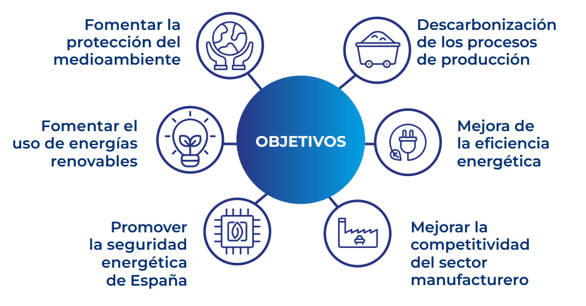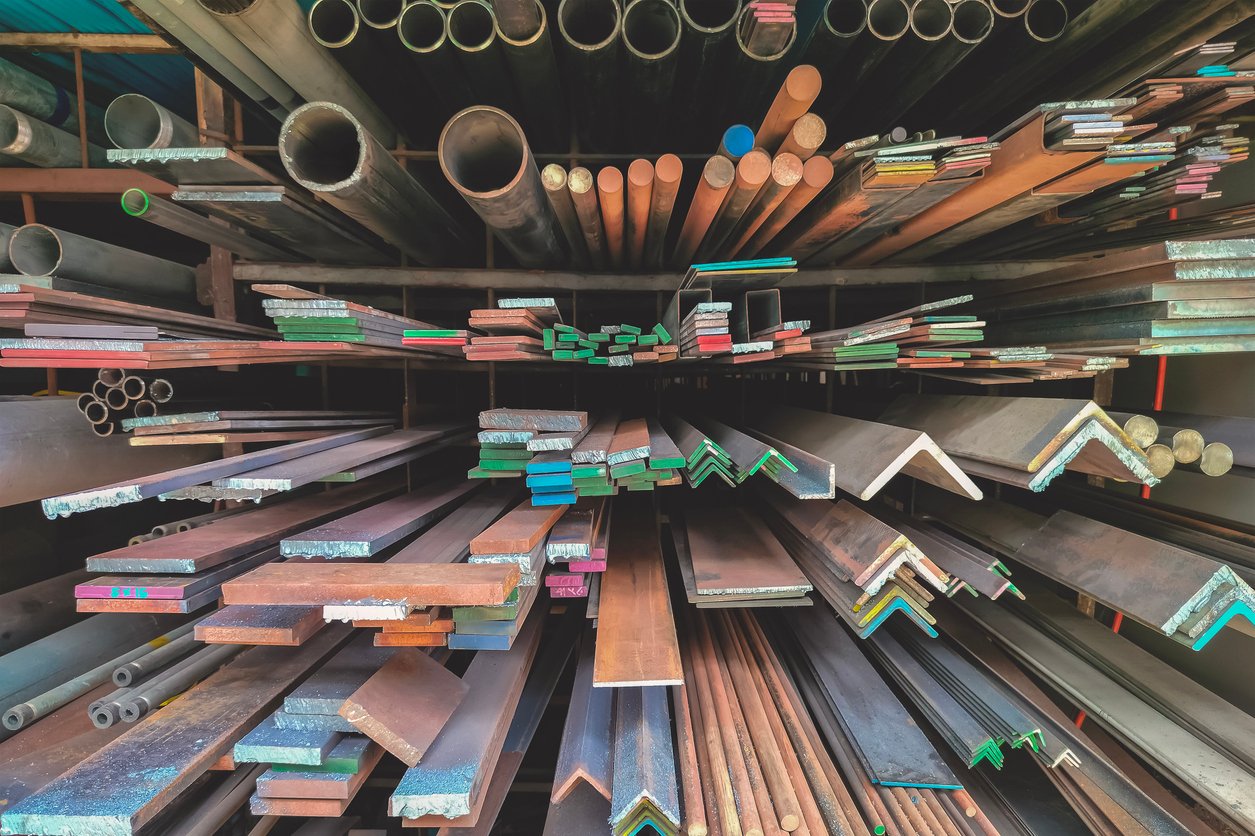The industry plays a key role in the development of any country, and Spain is no exception. Representing 15.4% of Spain's GDP, the manufacturing sector employs more than 2 million workers in the country.
Manufacturing processes require large amounts of energy and currently many of them still depend on the use of fossil fuels. For this reason, the Government intends to support companies in their transition towards more environmentally friendly models, in order to decarbonise the sector.
One of the active agents in the building industry are the manufacturing companies of materials. The choice of materials with low environmental impact is crucial for the construction of sustainable buildings.
The new PERTE Industrial Decarbonisation
The new PERTE Industrial Decarbonisation programme offers materials manufacturers the opportunity to convert their production lines and produce low carbon materials, which will contribute to sustainability in the building industry.
The PERTE Decarbonisation has a total budget of EUR 3.1 billion, made up of EUR 1.4 billion in the form of grants and EUR 1.7 billion in the form of loans.
At Zero Consulting, the correct selection of materials that make up the buildings is of vital importance. We thoroughly analyse the different material options through Life Cycle Analysis and Real Estate Portfolio Analysis, as well as keeping up to date with the latest sustainable materials on the market and being in contact with the producers.

Objectives of the new PERTE Industrial Decarbonisation. Source: Executive Summary PERTE
Scheduled dates
The actions planned within the framework of the PERTE Industrial Decarbonisation will be carried out between 2023 and 2026. The key dates are as follows:
- Publication of the order of bases: Fourth quarter of 2023 (October - November).
- 1st Call: Fourth quarter of 2023 (October – November).
- 2nd Call: From the first or second quarter of 2024.
- Commitment Implementation of Funds: Until March 2026 for the first call and until March 2028 for the second call.
The 4 lines of subsidy
Within the PERTE Decarbonisation program, various lines of aid are offered, which are:
- Line A: Comprehensive action aids for the decarbonisation of the manufacturing industry.
- Line B: IPCEI Hydrogen
- Line C: Carbon Contracts for Difference
- Line D: Support for the development of new highly efficient and decarbonised facilities
Line A: Comprehensive action aids for the decarbonisation of the manufacturing industry
This line is aimed at individual companies in the manufacturing industry sector (CNAE 10-32), as well as individual companies or groups of at least 2 companies that have a main industrial facility where the project is carried out. Energy service companies can also be beneficiaries of this line.
The application process is simple, with flexible submission deadlines and multiple opportunities. The main objective is to reduce CO2 emissions by at least 3,000 tonnes of CO2 equivalent. To qualify for this line, a minimum investment of 1 million euros is required, and the aid can cover up to 80% of the costs (30-50% as a grant and the rest as a loan), with a maximum aid limit of 30 million euros. The areas of action include environmental protection, energy efficiency, reduction of natural resources, the use of renewable energies for self-consumption, and I+D+i projects that promote the decarbonisation of the facilities.
Line B: IPCEI Hydrogen
This line is intended for projects of high national interest related to climate objectives, which due to their large investment would not be viable with conventional state aid. It is based on IPCEI's pre-selection of the renewable hydrogen industrial chain, covering technology, industrial use, mobility and transport, clusters and production capacity.
Line C: Carbon Contracts for Difference
This line focuses on the creation of a fund to support carbon Contracts for Difference (CCfD). It works similarly to current bidding systems for renewable energies. Instead of paying the difference between the strike price of electricity and the market price of electricity, the public counterparty would pay the difference between a fixed competitive price (CO2 strike price) and the actual reference price of CO2 in the EU ETS. This allows companies and investors to agree on a carbon strike price for a specific period, and the public counterparty compensates if the actual reference price is lower than agreed, or vice versa.
Line D: Support for the development of new highly efficient and decarbonised facilities
This line is designed to provide support to new facilities that are exemplary in terms of efficiency and have zero net emissions in the industrial sector, and that use BAT in decarbonisation in their sectors. The aid provided in this line ranges between 40 and 50 million euros. The support line for these projects could be carried out through their individual notification to the European Commission, in compliance with the corresponding state aid guidelines.
In summary, the PERTE Industrial Decarbonisation program represents a significant step in the right direction for Spain's manufacturing industry. The transition towards more environmentally friendly production models is essential, not only to meet climate commitments, but also to boost competitiveness and sustainability in the sector. The four grant lines offer key opportunities for companies seeking to innovate and adopt advanced technologies in decarbonisation.


